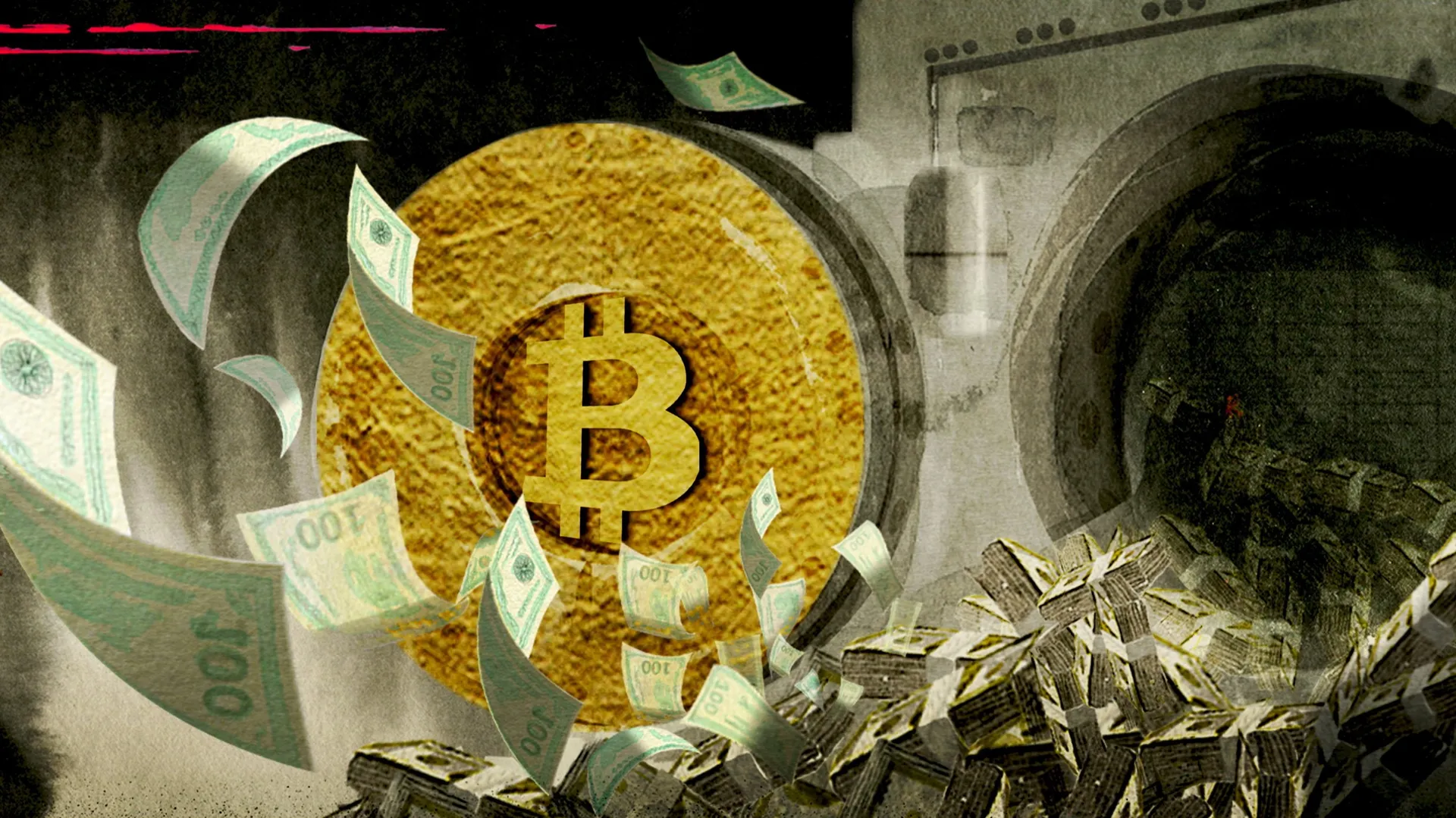尊敬的用户您好,这是来自FT中文网的温馨提示:如您对更多FT中文网的内容感兴趣,请在苹果应用商店或谷歌应用市场搜索“FT中文网”,下载FT中文网的官方应用。

My heart sank last week when I read that JPMorgan Chase was looking into lending against clients’ cryptocurrency holdings, even though we all knew the day was coming when crypto would make its way into the real economy.
上周,当我读到摩根大通(JPMorgan Chase)正在考虑以客户的加密货币持有作为贷款抵押时,我的心一下子沉了下来,尽管我们都知道,加密货币终有一天会进入实体经济。
Bitcoin, one of the digital assets banks may lend against, has been nearly four times as volatile as major indices since 2020. It has also had ties to terror funding, and I have yet to read anything that made me think it is more than a tool for speculators and criminals. But that hardly matters when the largest political donors are behind it.
比特币是银行可能用作抵押的数字资产之一,自2020年以来,其波动性几乎是主要指数的四倍。比特币还曾与恐怖融资有关联,而我至今还没有看到任何让我相信它不仅仅是投机者和犯罪分子的工具的内容。但当最大的政治捐助者都在支持它时,这些问题几乎就变得无关紧要了。
Crypto political action committees have, over the last several years, spent tens of millions of dollars donating to not only Republican politicians but many Democrats too. This effort culminated a couple of weeks ago in the passage of the Genius Act. Legislation covering other crypto assets is expected later this year. I predict all this will not only cause the next financial crisis, but fuel even more political populism and unrest in the US.
在过去几年里,加密货币政治行动委员会已经花费了数千万美元,不仅向共和党政客捐款,也向许多民主党人捐款。这一努力在几周前随着《Genius Act》的通过达到了高潮。预计今年晚些时候还会有涉及其他加密资产的立法出台。我预测,这一切不仅会引发下一场金融危机,还会在美国助长更多的政治民粹主义和社会动荡。
It’s all too reminiscent of 2000, when advocates for over-the-counter derivatives descended on Washington begging to be properly “regulated” so that they could gift the world with financial “innovation.” What we got instead was a seven-fold increase in poorly regulated credit default swaps that culminated in the great financial crisis of 2008.
这一切不禁让人想起2000年,当时场外衍生品的倡导者蜂拥至华盛顿,恳求获得“适当的监管”,以便他们能为全球带来金融“创新”。然而,最终的结果却是监管不力的信用违约掉期激增了七倍,并最终引发了2008年全球金融危机。
Now consider that US Treasury secretary Scott Bessent expects the stablecoin market to grow tenfold over the next few years, from a near-$200bn to a $2tn industry, one that will be embedded in everything from loan underwriting to Treasury markets.
现在请注意,美国财政部长斯科特•贝森特(Scott Bessent)预计,未来几年内,稳定币市场将增长十倍,从接近2000亿美元扩大到2万亿美元,成为一个涵盖从贷款承销到国债市场等方方面面的产业。
As Democrat Elizabeth Warren, the ranking member of the Senate banking commission, told me last week: “We’ve seen this movie before,” with lobbyists “saying, ‘Please regulate us’ because they want the gold sticker of government confirmation that they are a ‘safe’ investment,” and politicians offering up bipartisan support for deregulation.
正如参议院银行委员会的首席民主党成员伊莉萨白•沃伦(Elizabeth Warren)上周对我说:“我们以前见过这种情况。”游说者们会说‘请监管我们’,因为他们想要政府认证的‘安全投资’金字招牌,而政客们则提出两党支持以推动放松监管。
Indeed, you can draw a clear line from derivatives deregulation in 2000, and the broader Clinton era deregulation that eroded the barriers between trading and lending, to the weakening of Dodd Frank regulation for regional banks in 2018 (which contributed to the banking crisis of 2023), and now, the Genius Act. All of it was bipartisan.
事实上,从2000年衍生品监管放松,以及更广泛的克林顿时代放松监管、削弱了交易与放贷之间的隔离,到2018年针对地区性银行的多德•弗兰克(Dodd Frank)监管被削弱(这也促成了2023年的银行危机),再到现在的Genius Act,这一切都有清晰的脉络可循。而且,这些举措都是两党共同推动的。
Warren, who was brought to power by voters who felt betrayed by mainstream politicians of both stripes, waged an unsuccessful campaign to convince Democrats not to go along with Republican support for the Genius Act.
沃伦是在感到被两党主流政客背叛的选民支持下上台的。他曾发起一场未果的运动,试图说服民主党人不要与美国共和党一道支持Genius Act。
But money talks, and the crypto lobby has already shown tremendous power by spending $40mn to defeat critics like Sherrod Brown of Ohio, the former Senate Banking chair. While almost two-thirds of Senate Democrats voted against the Genius Act, the proponents — including influential Democratic senators like Virginia’s Mark Warner and New York’s Kirsten Gillibrand — were enough for the legislation to pass.
但金钱的力量不可小觑,加密货币游说团体已经展现出巨大影响力,他们花费了4000万美元击败了包括前参议院银行委员会(Senate Banking)主席、俄亥俄州的谢罗德•布朗(Sherrod Brown)在内的批评者。尽管近三分之二的参议院民主党(Senate Democrats)投票反对Genius Act,但支持者——包括弗吉尼亚的马克•沃纳(Mark Warner)和纽约的柯尔斯滕•吉利布兰德(Kirsten Gillibrand)等有影响力的美国民主党参议员——依然足以让该法案获得通过。
This worries me for four reasons.
这让我感到担忧,原因有四点。
First, the Genius Act (like the Commodity Futures Modernization Act of 2000) is being marketed as a way to make crypto safer, with stablecoins backed one to one by US dollars.
首先,Genius Act(类似于2000年的《商品期货现代化法案》)正被宣传为提升加密货币安全性的举措,稳定币将由美元一比一支持。
But that doesn’t make what is, more broadly, a volatile asset class any less volatile. Indeed, it may only make the overall market more so. Advocates talk about cryptocurrencies such as bitcoin as a hedge against traditional markets, but in fact, bitcoin is a “high beta” investment, meaning that it is highly correlated to the stock market. That means that both gains and losses relative to the S&P are amplified. Anything over a beta of one indicates a higher volatility than the market. A recent Fidelity report found bitcoin’s rolling 3-year beta to the S&P was 2.6.
但这并不会让本质上波动性极高的资产类别变得更稳定。事实上,这甚至可能让整个金融市场更加动荡。支持者常常将比特币等加密货币称为对冲传统市场的工具,但实际上,比特币是一种“高贝塔”投资,意味着它与股市高度相关。这也意味着其相对于标普500指数的涨跌都会被放大。任何高于1的贝塔值都表明其波动性高于市场。富达(Fidelity)最近的一份报告发现,比特币与标普500指数的3年滚动贝塔值为2.6。
Second, I can’t imagine a worse moment to encourage financial “innovation” than when markets, economics and monetary policy are so uncertain.
其次,我无法想象还有比在金融市场、经济和货币政策如此不确定的时候更糟糕的时机去鼓励金融“创新”。
Consider what could happen if, over the coming months or years, the Fed must raise interest rates more sharply due to inflation. Markets would tank, as they always do when rates go up. Crypto would fall further and faster. Financial institutions (including any number of shadow banks) holding crypto on their balance sheets could then run into trouble, causing credit markets to freeze.
想象一下,如果在接下来的几个月或几年里,美联储因通胀不得不大幅加息,会发生什么。金融市场会像以往加息时一样暴跌,加密货币会跌得更快、更猛。持有加密货币的金融机构(包括众多影子银行)可能因此陷入困境,导致信贷市场冻结。
Suddenly, we’re facing echoes of 2008. Enter my third worry. Genius Act proponents say it will support the dollar and the Treasury market. But one could easily imagine a flight to safety into which crypto companies like, say, Tether (which has more US Treasury holdings than Germany) must sell T-bills into a down market to cover redemptions. Then you’ve got a fire sale, higher borrowing costs, and yet another disastrous situation in which Main Street is under pressure to bail out speculators.
突然间,我们又面临着2008年的回响。这就引出了我的第三个担忧。Genius Act的支持者表示,该法案将有助于支撑美元和美国国债市场。但人们很容易想象一种避险潮,比如像泰达币(Tether)这样的加密公司(其持有的美国国债比德国还多),在市场下跌时不得不抛售国库券以应对赎回需求。这样一来,就会出现抛售潮、借贷成本上升,以及又一次灾难性的局面——主街(Main Street)不得不承受压力,为投机者买单。
But this time, it comes after more than two decades of growing cynicism with politics. This gets me to my final worry. Financial deregulation from the late 1990s under the Clinton administration set the stage for both 2008 and a loss of working people’s support for Democrats. That in turn set the stage for Trump’s rise.
但这一次,发生在经历了二十多年对政治日益增长的愤世嫉俗之后。这引出了我最后的担忧。上世纪90年代末,克林顿政府推行的金融放松监管,为2008年金融危机以及工人阶层对民主党的支持流失埋下了伏笔。而这又为特朗普的崛起创造了条件。
Trump has now set the stage for our next financial crisis by backing (and of course, trading) crypto. What happens when we get financial chaos and more voter cynicism about mainstream politics at a time when there is less interest or ability for the government to buffer a downturn? No coin, and nothing stable.
特朗普如今通过支持(当然也包括交易)加密货币,为我们下一次金融危机埋下了伏笔。当金融混乱来临、选民对主流政治更加愤世嫉俗,而政府又缺乏兴趣或能力来缓冲经济下行时,会发生什么?既没有货币,也没有稳定。
虚拟货币相关活动存在较大法律风险。请根据监管规范,注意甄别和远离非法金融活动,谨防个人财产和权益受损。